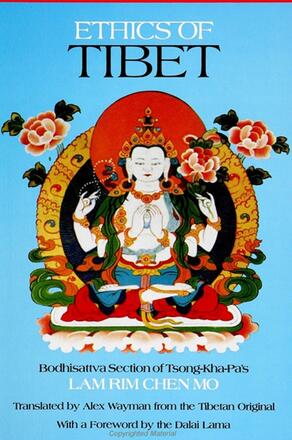
Ethics of Tibet
Bodhisattva Section of Tsong-Kha-Pa's Lam Rim Chen Mo
Alternative formats available from:
Description
One of the great contributions of Tibetan Buddhism to the Buddhist tradition as a whole, and one of the things that distinguishes it from the Mahayana traditions that developed via China, has been the clear and systematic articulation of a doctrine of compassion. This text is perhaps the paradigmatic expression of that and as such is vitally important. It will advance Western access to and understanding of Tibetan Buddhism considerably.
Alex Wayman is Professor of Sanskrit at Columbia University.
Reviews
"One of the leading Tibetan scholars in the world has translated this work by the great Tsong-kha-pa, the titular head of the Ge-lug-pa Sect and perhaps the Tibetan equivalent of the great Nagarjuna. This first complete English translation also reveals the encyclopedic mind of Tsong-kha-pa, whose copious references to the sutras are a gold mine. He, more than anyone else, shaped the development of Tibetan Buddhism as we know of it today.
"This book is very interesting and easy to read, because it is a systematic, step-by-step analysis of the conditions necessary for the progress in spiritual attainment, from the awakening of the mind of enlightenment (bodhicitta) to the final insight (prajna). It is definitely a useful text for understanding Tibetan Buddhism at the core and for comparative studies involving other systems of thought within Buddhism. " —Kenneth K. Inada, State University of New York, Buffalo